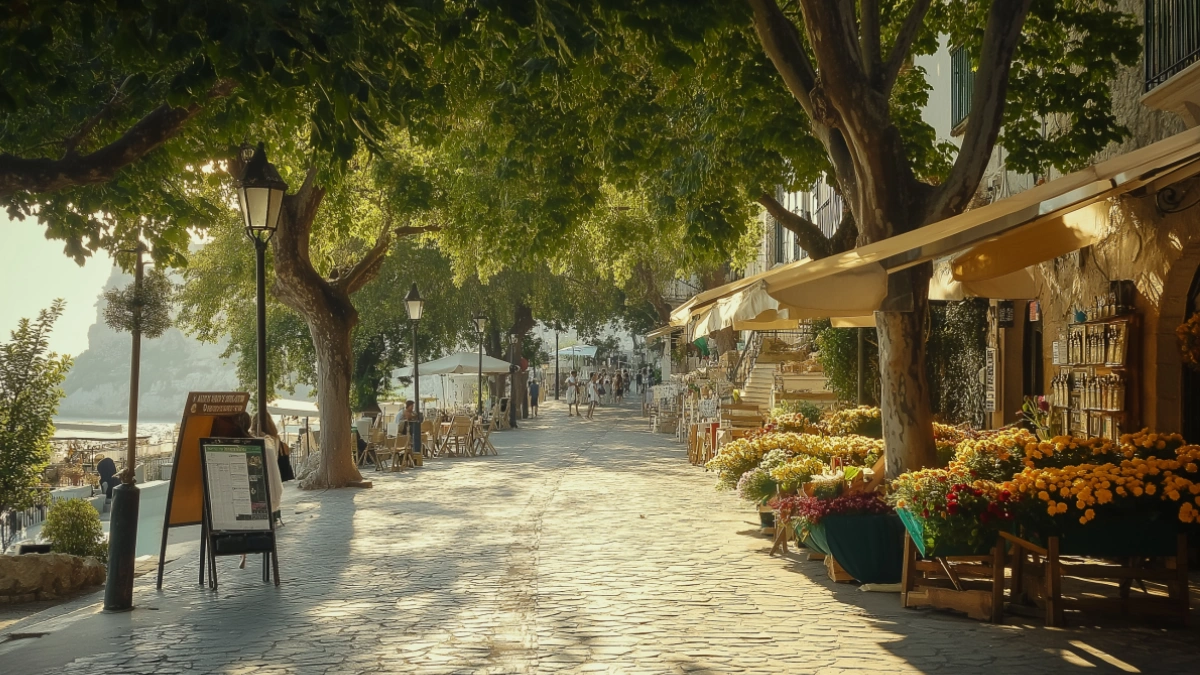Exploring La Rambla: A Must-Visit in Barcelona, Spain
Table of Contents
No trip to Barcelona is complete without a stroll down La Rambla. This tree-lined boulevard stretches for 1.2 kilometers, connecting Plaça de Catalunya with the city’s bustling Port Vell. At first glance, it might seem like a tourist hotspot—and it is—but beneath the buzz lies centuries of history, layered culture, and local rhythm. La Rambla isn’t just a street; it’s a sensory experience that captures the heart of Barcelona in motion.
According to Barcelona Turisme, La Rambla is among the top three most-visited landmarks in the city each year, welcoming more than 70 million footfalls annually. But what makes it so magnetic? It’s the blend of heritage, energy, and accessibility: one minute you’re admiring mosaic tiles by Miró, and the next, you’re nibbling on jamón ibérico at one of Europe’s most famous food markets.
This guide will take you on a journey through La Rambla’s most iconic attractions and lesser-known gems. From vibrant flower stalls to elegant theaters and medieval alleyways, here’s how to experience the very best of La Rambla in 2025.
Start at Plaça de Catalunya: Barcelona’s Beating Heart
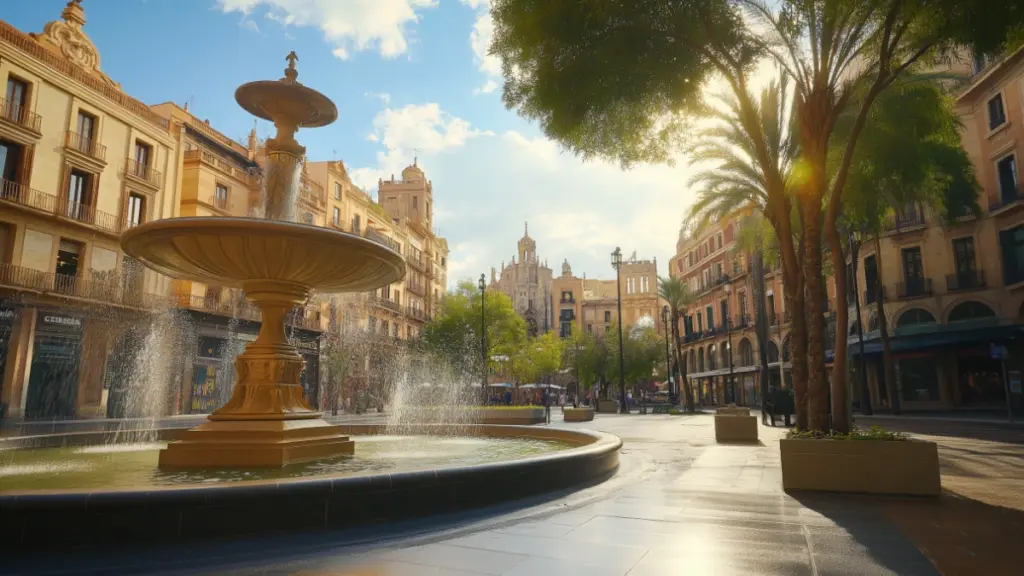
Plaça de Catalunya serves as the northern gateway to La Rambla—and to much of Barcelona’s city center. It’s a dynamic urban square where boulevards converge, and public life thrives.
Highlights of Plaça de Catalunya:
| Feature | Why It Matters |
|---|---|
| Central Transit Hub | Connects metro lines, buses, and Aerobus |
| Public Art & Fountains | Great for photos and people-watching |
| Department Stores | El Corte Inglés is perfect for souvenirs |
From here, La Rambla descends south toward the sea. Take a few minutes to admire the massive open plaza, often filled with performers, pigeons, and locals commuting through. Grab a café con leche at a nearby terrace and prepare to enter Barcelona’s most storied avenue.
Stroll Through the Flower and Newspaper Stalls
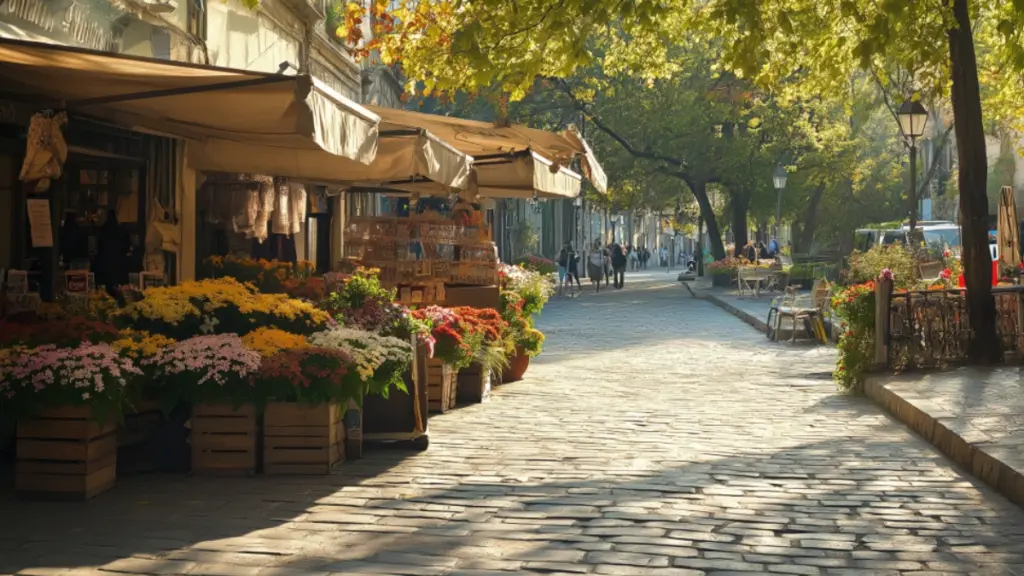
One of La Rambla’s enduring charms is its bustling street life. Among its oldest traditions are the flower vendors and newspaper kiosks lining the central promenade.
Charming Features of This Section:
| Feature | Description |
|---|---|
| Flower Stalls | Bright blooms from roses to orchids |
| Historic Kiosks | Vintage charm and a glimpse into old Barcelona |
| Souvenir Shops | Small items like postcards and artisan fans |
The scent of fresh petals mingles with the salty Mediterranean air, while local newspapers and global publications spill from shelves in every language. While the kiosks once catered to Barcelona’s readers, today they’re a nostalgic nod to the past.
Dive Into Mercat de Sant Josep de la Boqueria
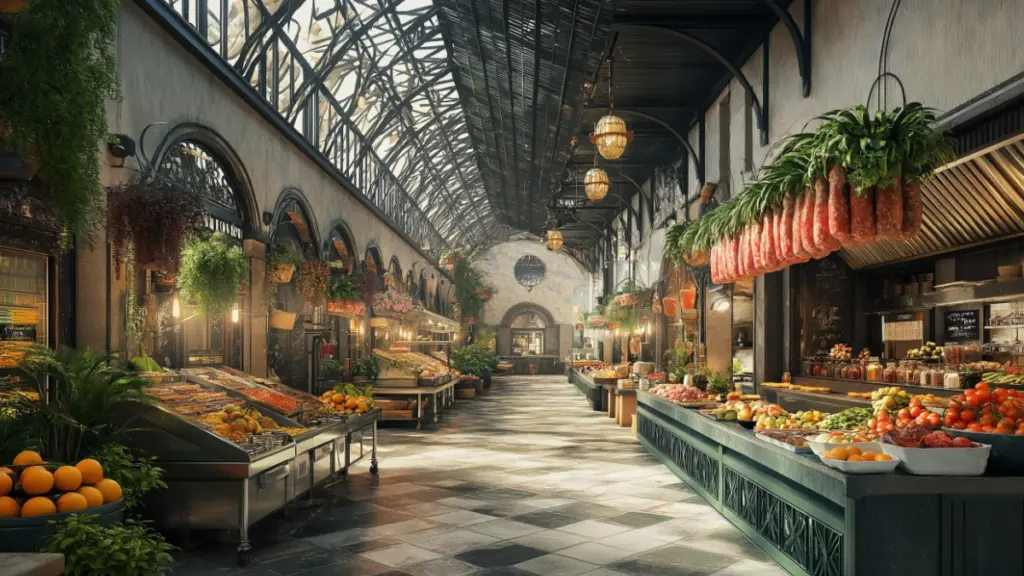
Arguably the most iconic stop along La Rambla, La Boqueria is more than just a market—it’s a sensory playground. Founded in the 13th century, this vibrant market is a kaleidoscope of colors, flavors, and aromas.
What You’ll Find in La Boqueria:
| Section | Highlights |
|---|---|
| Fresh Produce | Local fruits, citrus, and seasonal vegetables |
| Jamón & Cheese Counters | Iberian ham, Manchego, and regional delights |
| Tapas & Juice Bars | Quick bites like croquettes and fresh smoothies |
To avoid peak tourist crowds, visit in the morning before 11 a.m. Vendors are usually more relaxed, and you’ll find better selections. Don’t miss El Quim de la Boqueria—a family-run tapas stall famous for fried eggs and baby squid.
Admire the Mosaic by Joan Miró Underfoot
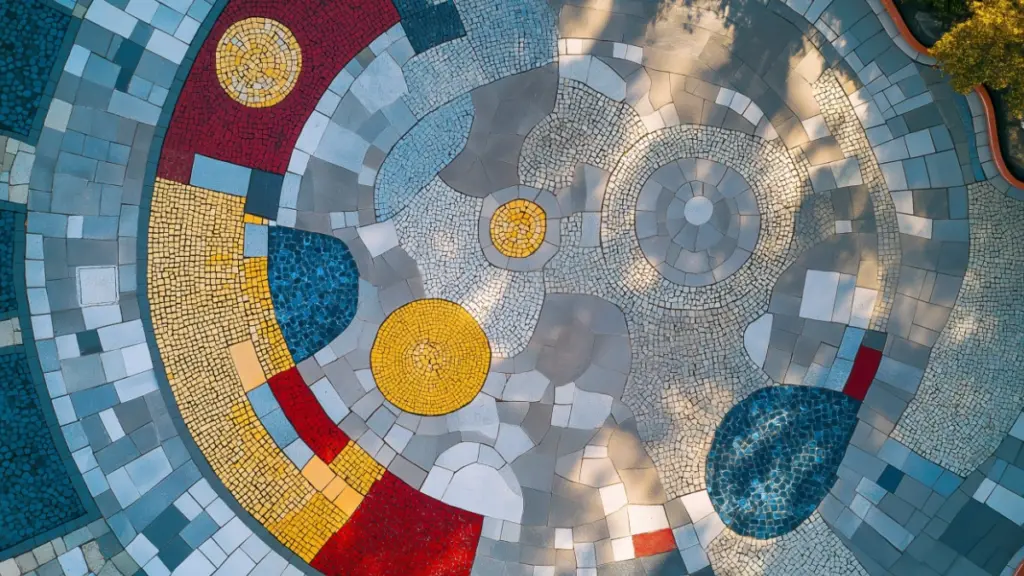
Most visitors walk over it without even noticing, but at the center of La Rambla, embedded into the pavement, lies a circular mosaic by Catalan artist Joan Miró.
Miró’s Mosaic Snapshot:
| Details | Significance |
|---|---|
| Created in 1976 | Gift to the city reflecting Catalan spirit |
| Red, Blue, Yellow | Signature Miró color palette |
| Durable Materials | Designed to be walked on, not fenced off |
This understated artwork is a symbol of how deeply art is woven into Barcelona’s everyday life. Pause here to appreciate the subtle genius beneath your feet.
Visit Gran Teatre del Liceu: Opera House with History
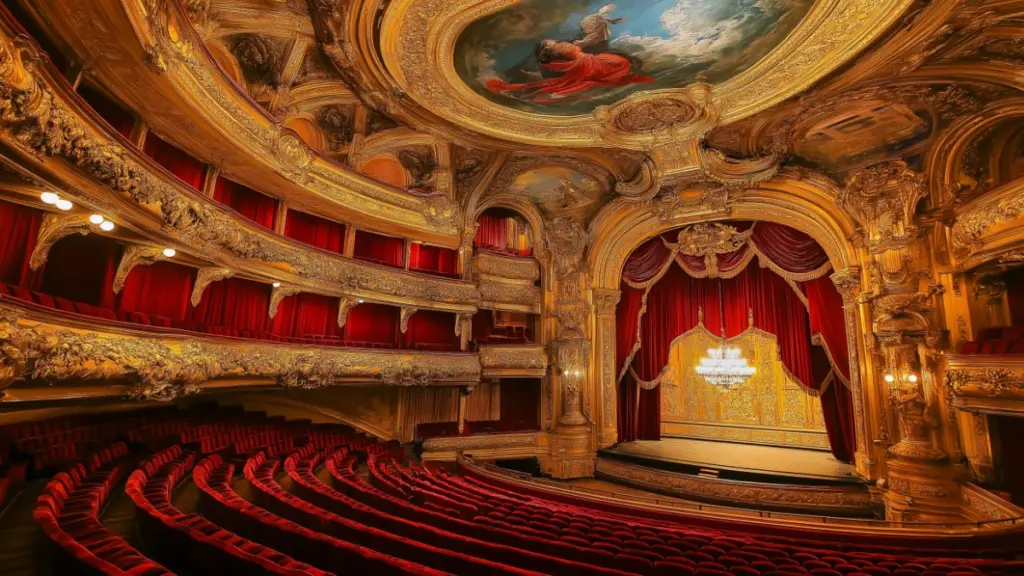
Culture lovers should take time to stop at the Gran Teatre del Liceu. This elegant opera house, rebuilt after a fire in 1994, is one of the oldest and most revered in Europe.
Why It’s Worth Visiting:
| Feature | Details |
|---|---|
| Built in 1847 | Icon of Catalan cultural pride |
| Lavish Interior | Gilded balconies, frescoed ceilings |
| Public Access | Guided tours available daily |
You don’t need to attend a performance to appreciate its grandeur. Guided tours are available and offer access to the stunning main hall, foyer, and historical exhibits.
Explore the Side Streets and Gothic Quarter Entrances
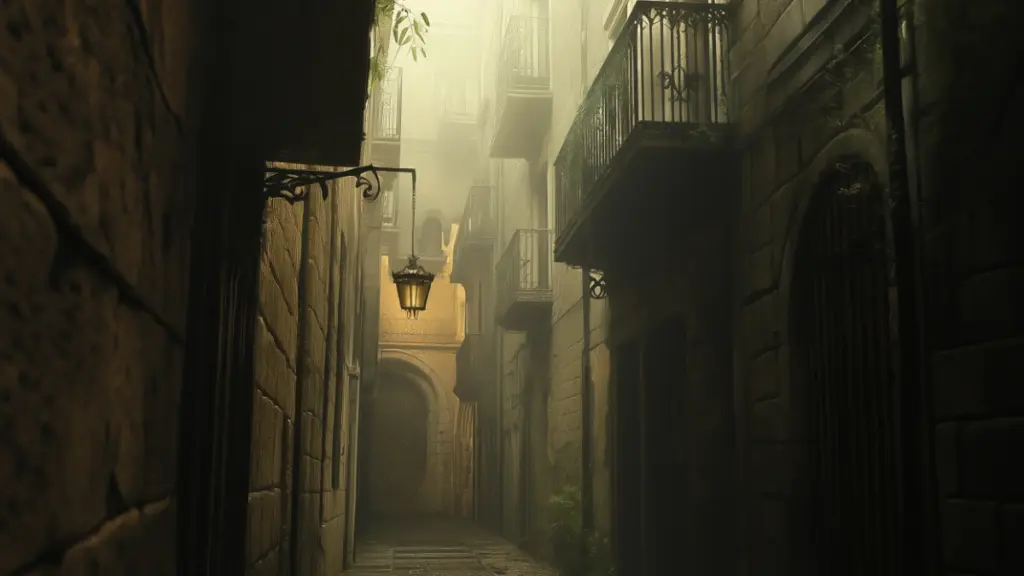
Branching off La Rambla are narrow alleyways leading into the Barri Gòtic (Gothic Quarter)—a medieval maze full of secrets. These shaded streets contrast sharply with the open promenade.
Hidden Gems Off La Rambla:
| Area | What to Discover |
|---|---|
| Carrer dels Escudellers | Tapas bars, flamenco venues |
| Plaça Reial | Elegant square with palm trees and nightlife |
| Jewish Quarter | Ancient synagogues and quiet charm |
Take your time wandering into side streets. Each turn may reveal a centuries-old courtyard, a boutique bookstore, or a tucked-away wine bar.
Pause at the Columbus Monument and Waterfront
La Rambla ends where it meets the sea, at the towering Mirador de Colom (Columbus Monument). It’s a symbolic bridge between Old World exploration and Barcelona’s maritime identity.
Columbus Monument Experience:
| Feature | Description |
|---|---|
| 60-Meter Tall Column | Statuesque view honoring Christopher Columbus |
| Panoramic Viewing Deck | Accessible via elevator |
| Port Vell Access | Steps from harbor-side attractions |
From here, stroll down to Port Vell and take in the view of yachts and seagulls. It’s the perfect way to round off your La Rambla walk—bookended by city life on one end and coastal tranquility on the other.
Conclusion
La Rambla is more than a street—it’s the heartbeat of Barcelona. From flower stalls and tapas to hidden alleys and historic theaters, every step reveals something new and unforgettable. Whether you’re soaking in the chaos of La Boqueria, admiring street art, or sipping vermouth in a quiet plaza nearby, the journey down La Rambla captures the pulse of Catalan culture. Walk it slowly. Observe deeply. And let this legendary boulevard guide you into the true spirit of the city.

